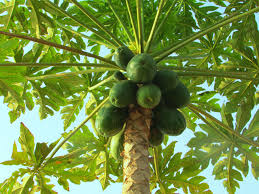
Neem oil, also known as margosa oil, is a vegetable oil pressed from the fruits and seeds of the neem (Azadirachta indica), a tree which is indigenous to the Indian subcontinent and has been introduced to many other areas in the tropics. It is the most important of the commercially available products of neem and is used for organic farming and medicines.
It is high in antioxidants and nutrients, which protect the skin from environmental damage and aid in the fight against free radicals. Cold-pressed neem oil is widely used in the production of cosmetics like hair products, soaps, hand creams, and pet shampoos.
Neem oil concentrates aid in blood sugar regulation, blood pressure regulation, weight management, disease prevention, and exercise recovery.
It's available in capsules, liquids, and powdered form. Dietary supplement consumption has been increasing in recent years, and the market is expected to grow at an exponential rate in the near future. Consumers' health consciousness is growing around the world, which is impacting the sales of dietary supplements as healthy alternatives to conventional medication.
Neem Oil Market was valued at US$ 1.57 Bn. in 2022. The Global Neem Oil Market size is estimated to grow at a compound annual growth rate (CAGR) of sixteen point two percent (16.2%) over the forecast period (2022-2029).
The medicinal properties of neem oil to cure diseases, its ability to enhance agricultural productivity and flavor food fosters the growth of the neem oil market. The hazardous effects of chemical-based fertilizers and pesticides on humans have caused an alarming concern to the regulatory authorities and consumers. This has compelled the farmers to use bio-based farm products, which has a direct impact on the demand for neem extract-based fertilizers for agriculture purposes. This significantly drives the growth of the neem oil market.
Neem oil is also potent element in pest repellent, which ultimately favors the market growth since it encourages neem oil manufacturing. However, countries such as Africa, which hold a smaller number of neem trees are compelled to import from Asian countries. This increases their cost of raw material and hence manufacturing of the product.
Therefore, these manufacturers are inclined to opt for substitute herbs, which might consequently hinder the growth of the neem oil market.
Neem cake, which is a byproduct of the neem oil industry can be used as a livestock and natural pesticide. It also has tremendous potential as a mosquito repellent in countries facing diseases due to malarial pathogen. Neem oil significantly consists of contraceptive properties, which can be viewed as an opportunity by the pharmaceutical industry in countries such as China and India, facing severe population challenges.
The Neem tree popularly referred to in Hausa language as Dogon Yaro, is widely found in northern Nigeria with millions of trees planted across Borno, Katsina, Yobe, Adamawa, Zamfara, Kebbi, Sokoto, Niger and Nasarawa states to control desertification.
The importance of neem oil and cake as an industrial input (in terms of national demand) cannot be over emphasized and Nigeria stands to benefit economically if a processing plant could be established in the country.
The needed raw materials are available in the country and the machinery and technology can be sourced from abroad, while we work on developing our own technology.






















